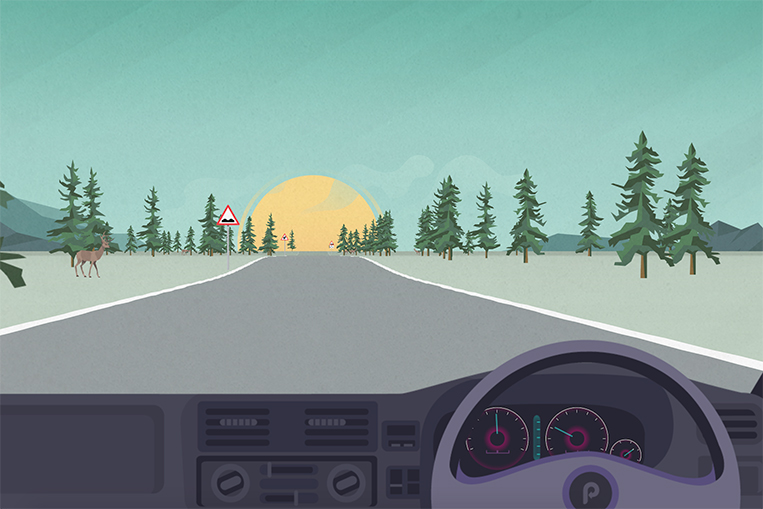
In recent months, we’ve been reading a lot of news about really old drivers getting into motoring accidents. Which makes this the perfect time to bring up the need for the Land Transportation Office to consider implementing a specially designed fitness assessment test to help determine whether a senior person can still be trusted to operate a motor vehicle alone. This is not discriminating against the elderly; this is merely acknowledging the fact that old people have very unique physical and mental challenges that they’re forced to deal with. Challenges that make the task of driving doubly difficult.
It doesn’t have to be an elaborate test. It could be a very simple reaction test. Many neuroscience studies will tell you that “the elderly often process information more slowly than younger individuals, and the time allocated to process information is often incompatible with driving demands.” According to the American Automobile Association, a typical driver has to make 8-10 major decisions over each kilometer of driving. Think about the stress and the pressure this puts on a 70-year-old motorist. “Even if you have excellent judgment while driving, it may be challenging at times to integrate information from several sources at once,” the AAA says. “This can slow driver reaction time and inhibit safe driving in dangerous situations.”
A reaction test we found online—courtesy of a British parking app called JustPark—is a good model.
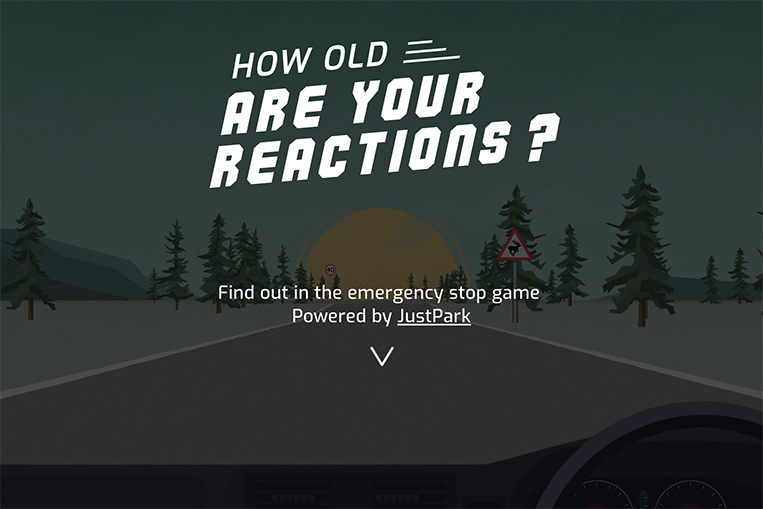
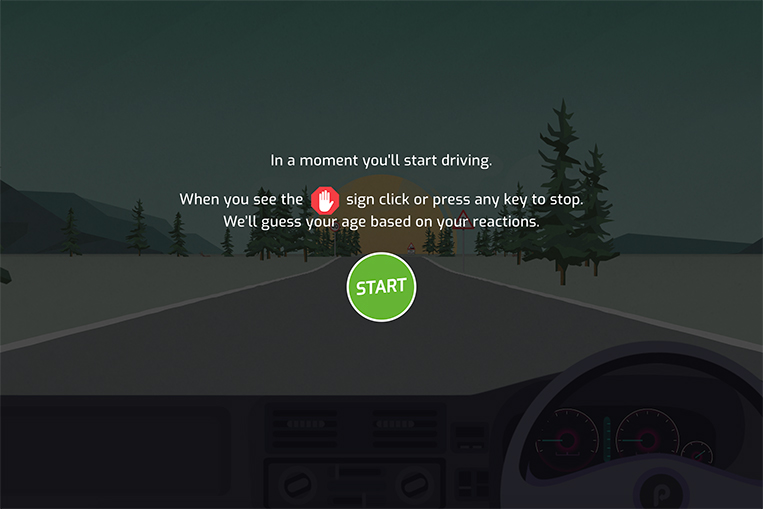
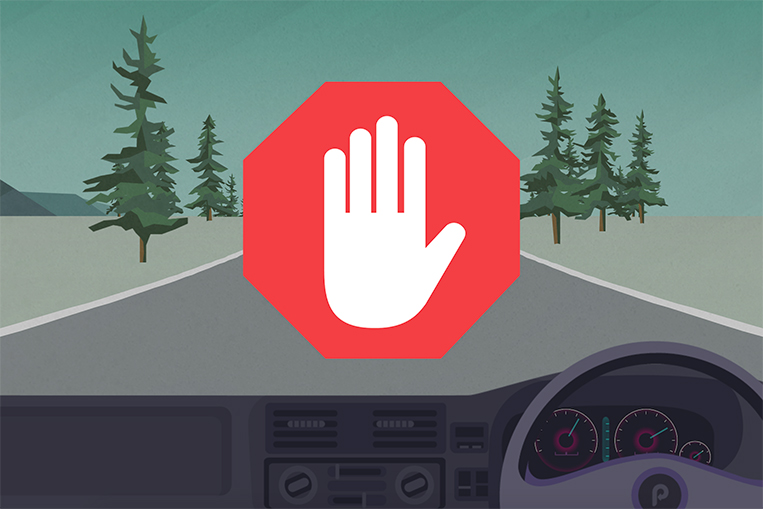
It’s as simple as tapping the screen of your phone or hitting any key on your keyboard once you see the STOP sign. It’s a nice little gauge of how fast your brain can process what’s happening around you.
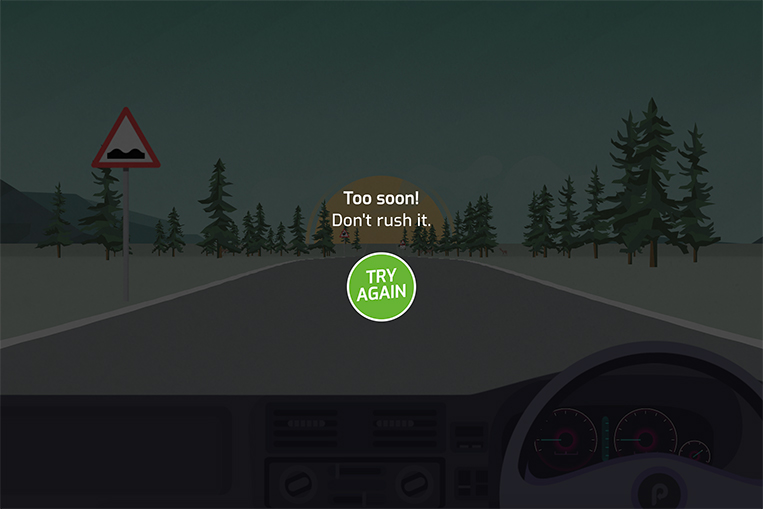
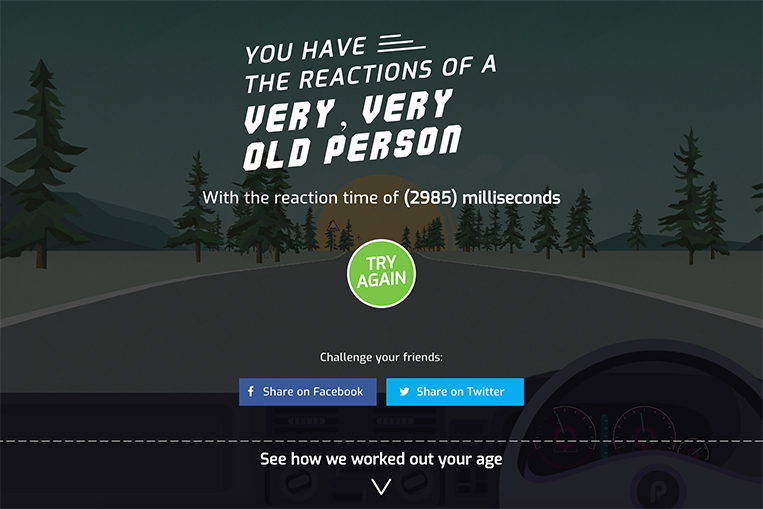
If you hit a key too soon, the result is invalid and you need to do it again. If you hit a key too late, well, you’re “a very, very old person.” Or at least your reflexes are.
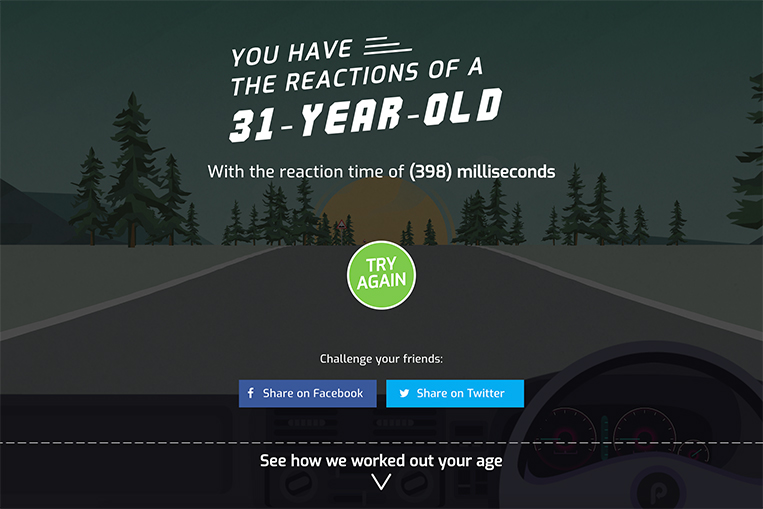
We did 398 milliseconds on our first try, which apparently makes us 31 years old in terms of reaction time.
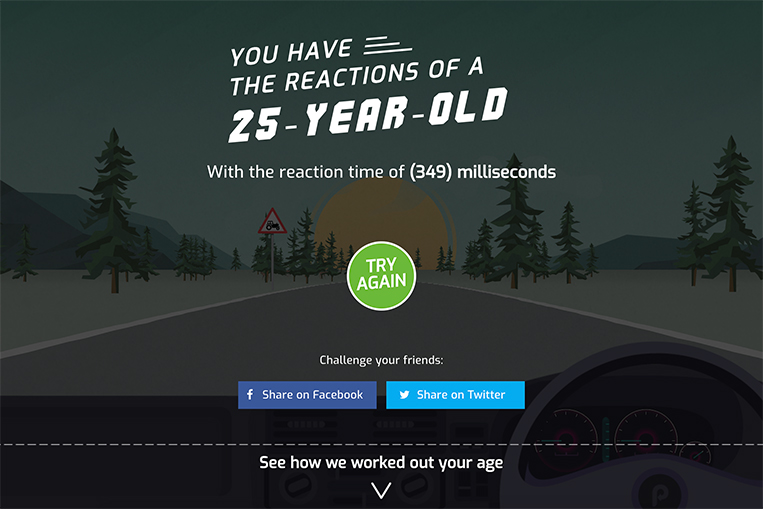
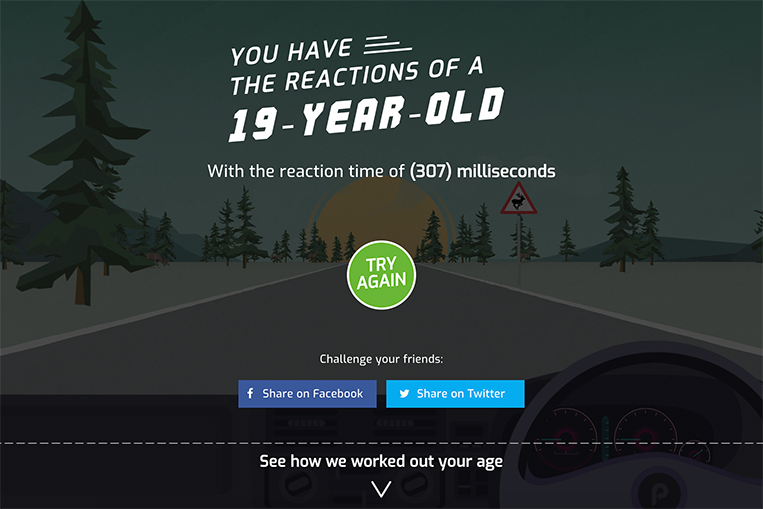
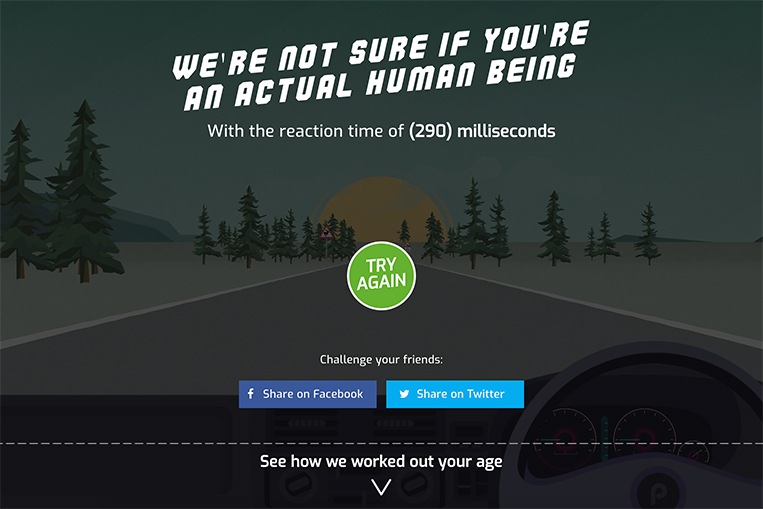
We then performed significantly better on our subsequent attempts, until we were no longer human.
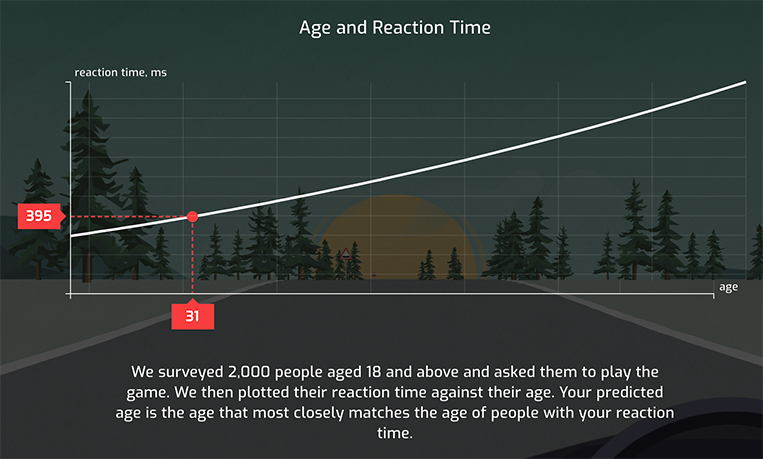
The chart upon which the assessment is based was derived from a survey of 2,000 people aged 18 and above, so it’s not without some logical framework.
The thing is, even if you do well in this test, the situation is radically more challenging when you’re actually driving. In this online test, you’re already anticipating the appearance of the “stop” sign, and your finger is already primed for action. In real-world driving, there are so many distractions, and your thoughts are probably flying everywhere. If your ability to react quickly has substantially deteriorated (and either you just don’t know it or you refuse to admit as much), you could be a potential risk on the road—both to yourself and to others. And let’s not even talk about the physical impediments an old body carries with it.
So, what’s your age on your first try?

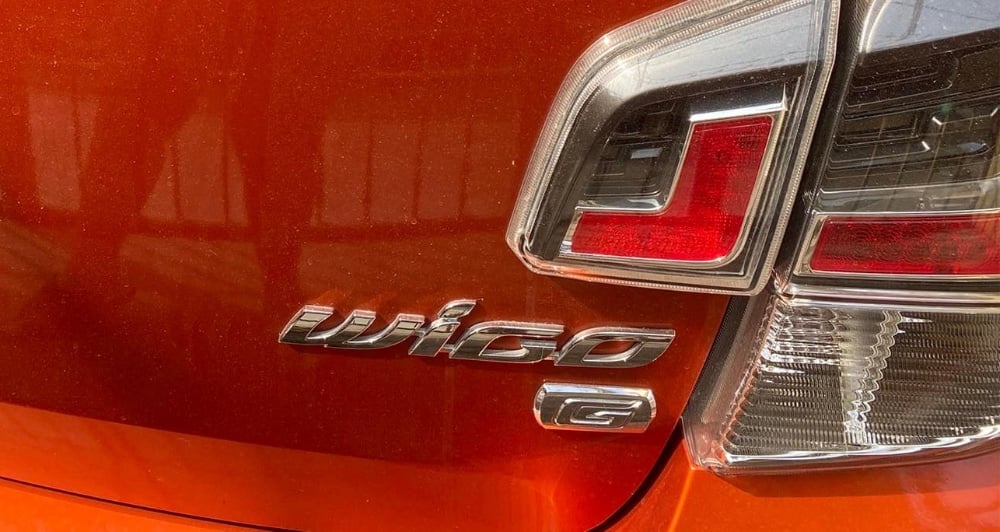


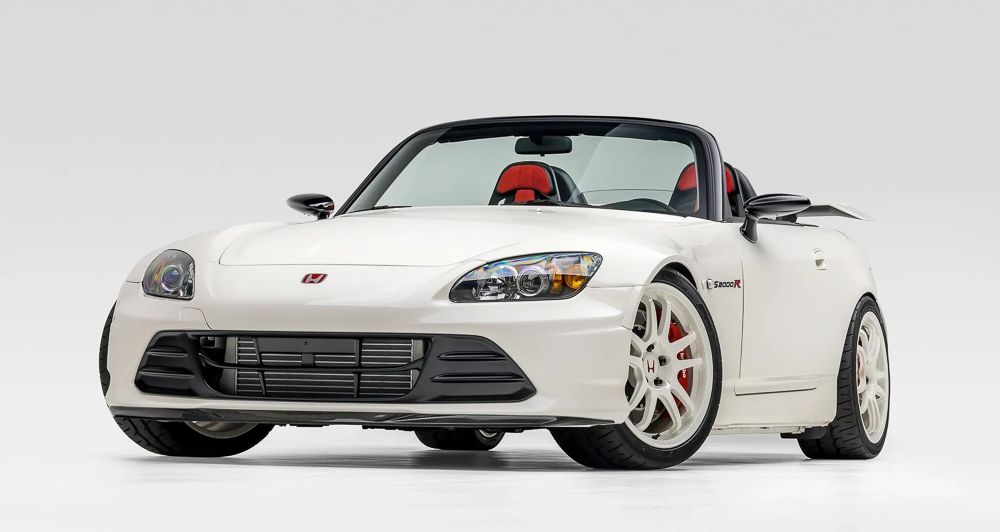
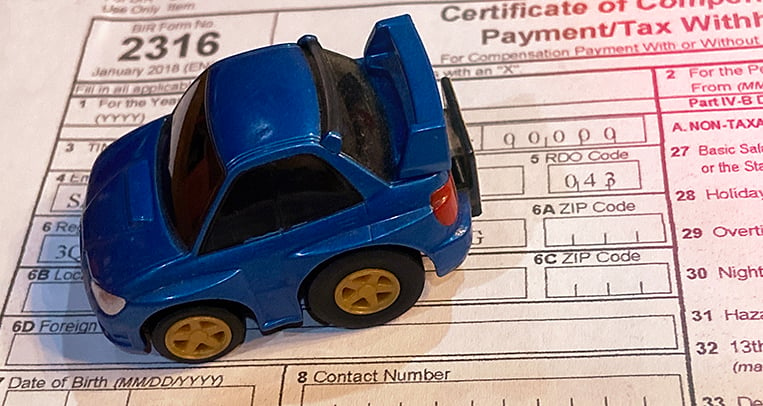
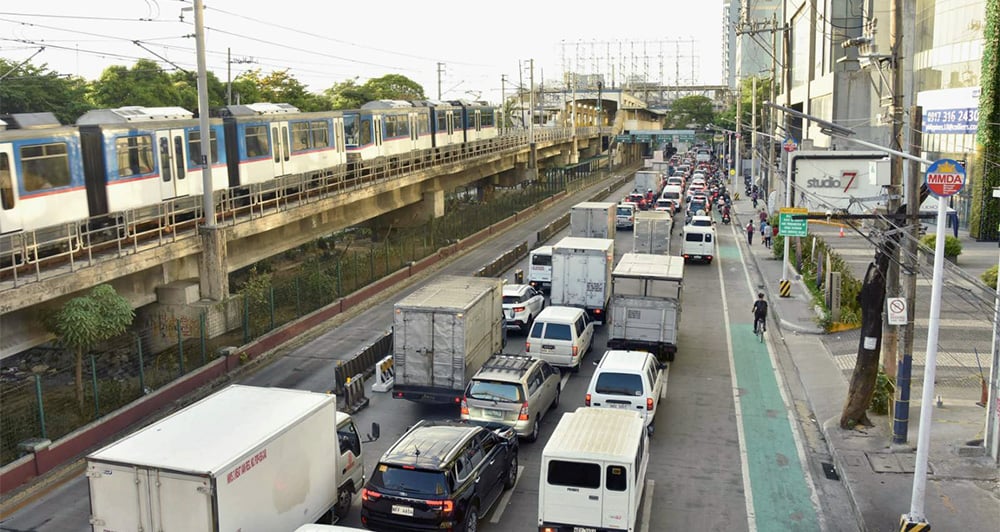




Comments